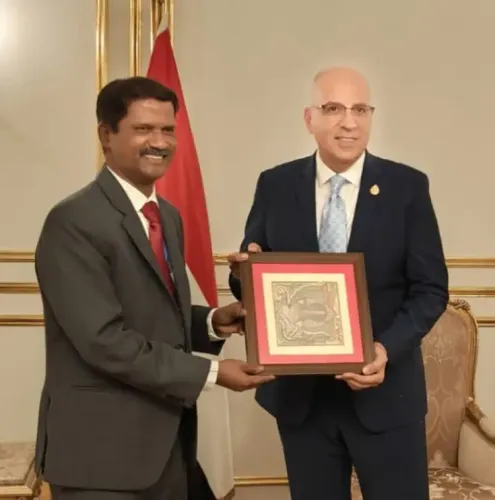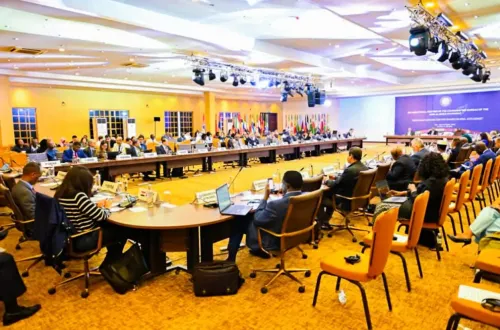Dengue Outbreak Announced in Quezon City, Philippines

Synopsis
Key Takeaways
- Quezon City has declared a dengue outbreak.
- Reported cases have surged by 200% this year.
- Health centers will operate on weekends for early detection.
- 58% of cases involve school-aged children.
- Global dengue cases are on the rise.
Manila, Feb 15 (NationPress) The Mayor of Quezon City, the most densely populated area in the capital region of the Philippines, has officially declared a dengue outbreak as of Saturday, noting a staggering 200 percent increase in cases.
Between January 1 and February 14, the city's health authorities documented 1,769 dengue cases, which is nearly double compared to last year, according to Quezon City Mayor Joy Belmonte.
Belmonte reported that 10 individuals, including eight minors, have succumbed to the disease.
"Our declaration of a dengue outbreak ensures that we are proactively managing the situation and taking necessary measures to safeguard our residents, particularly our children," Belmonte stated.
Notably, 58 percent of the reported cases are among school-aged children aged five to 17, while 44 percent involve children aged one to 10.
To combat the issue of late dengue diagnoses, all 66 city health centers will be operational on weekends from 8 a.m. to 5 p.m. to cater to potential dengue patients, Belmonte announced.
This outbreak declaration follows a report from the Philippines' Department of Health indicating a rise in water and food-borne diseases, as well as other illnesses including influenza-like symptoms, leptospirosis, and dengue.
As per government statistics, Quezon City had a population of nearly 3 million as of 2020, as reported by Xinhua news agency.
The dengue virus is recognized as the most significant arbovirus affecting humans, with approximately half of the global population at risk and an estimated 60–100 million symptomatic infections annually.
Dengue poses a major public health challenge in the Philippines, being endemic across all regions. Most outbreaks occur during the wet season, specifically from June to February.
Data from 2023 highlights increased dengue outbreaks in various nations including Bangladesh, Brazil, Burkina Faso, Fiji, Pakistan, the Philippines, and Viet Nam. Moreover, countries that are not traditionally affected by dengue are increasingly facing this serious public health issue.
Addressing dengue prevention and outbreak response requires collaboration from multiple agencies within the public health sector. A multidisciplinary and multisectoral approach is essential, particularly at the national level, to mitigate the impact on public health. The concurrent outbreaks and political crises underscore the necessity for effective emergency response strategies and enhanced partnerships among stakeholders.
The global shortage of resources, including high-quality dengue diagnostic kits for early detection, a lack of trained personnel in clinical and vector control, and insufficient community awareness present significant challenges to an effective response.









